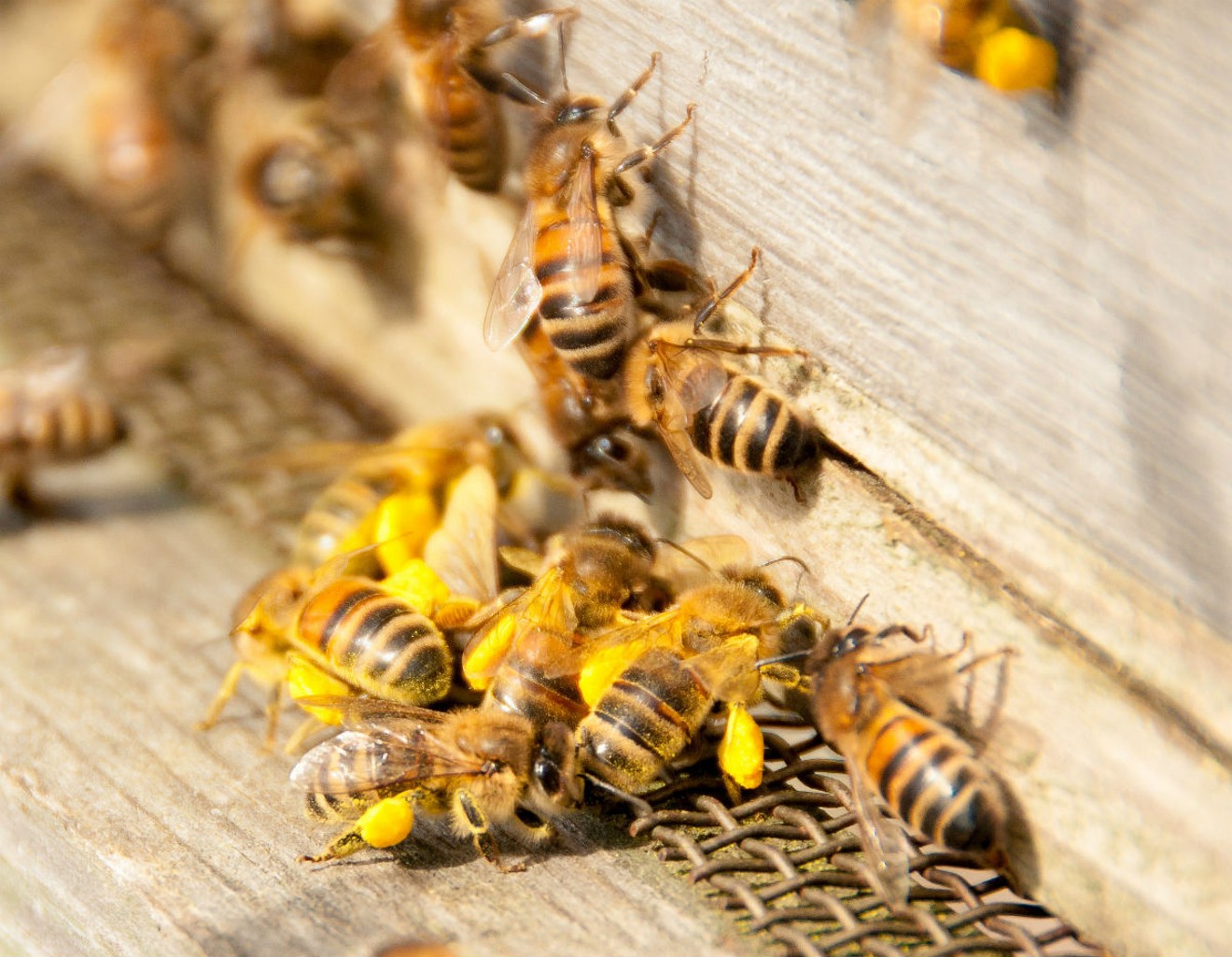With all the doom and gloom in the world right now, it's nice to get a little good news: Florida's honeybees are doin' all right. It turns out the state population of the little buzzers is increasing by 1 percent year over year.
Despite catastrophic statistics about honeybee decline, including a loss of 44 percent of colonies between 2015 and 2016, local horticulturist and entomologist Adrian Hunsberger of the University of Florida says local bees are in pretty good shape, all things considered.
There are about a half-million colonies statewide — up from last year. "Beekeepers have been working hard to make sure they have enough hives," Hunsberger says. "They're slowly increasing the number of hives."
Because honeybees aren't native to the United States, native crops don't rely on them for pollination. Some plants self-pollinate, some are wind-pollinated, and others rely on native insects, she explains. So as far as food is concerned, we actually rely on honeybees a lot less than is commonly believed.
That doesn't mean they're not important — they are, she explains. But it's not just honeybees we should be concerned about. "What I'd like the public to understand is that there are many insects that pollinate flowers, and as residents, we really encourage people not to be spraying their yard for no reason," Hunsberger says. "If they have a pest problem, they can contact our office and we can give them guidance."
During the Obama administration, the Environmental Protection Agency began highlighting pesticide labels, instructing people not to spray blooming plants to avoid killing bees. "They’ve highlighted it on the label so it’s more evident to people. If it's an insecticide, don’t spray the flowers. It's not just for honeybees; it's for all insect pollinators, including flies and beetles and thrips."
Though bees might be on the way up, it's still important to support them — and all other pollinators. In that vein, the Tropical Audubon Society (TAS) is hosting the BEE-cause flea market this Saturday, March 18, from 10 a.m. to 4 p.m. at TAS headquarters, 5530 Sunset Dr., Miami.
"Bee-cause Flea is inspired by the honey bees at Tropical Audubon Society and the gorgeous hives they've built in our little urban oasis, and in gratitude for their work and that of other pollinators — birds, butterflies, bats, and beetles — in giving our little blue planet sweet life," says Leticia de Mello Bueno of TAS. The market will include a whole host of vendors, including Bee Heaven Farm, Cafecito 305, Fair Trade Market, Keez Beez, and Reeny’s Butterflies. There'll also be workshops, demos, talks, and a pollinator walk.
As far as "pest" control or insect issues, Miamians are welcome to call 305-248-3311, ext. 228, or email [email protected] to reach Hunsberger and her team anytime. People can also visit miami-dade.ifas.ufl.edu to learn more.
[
{
"name": "Air - MediumRectangle - Inline Content - Mobile Display Size",
"component": "19274298",
"insertPoint": "2",
"requiredCountToDisplay": "2"
},{
"name": "Editor Picks",
"component": "17482312",
"insertPoint": "4",
"requiredCountToDisplay": "1"
},{
"name": "Inline Links",
"component": "18711090",
"insertPoint": "8th",
"startingPoint": 8,
"requiredCountToDisplay": "7",
"maxInsertions": 25
},{
"name": "Air - MediumRectangle - Combo - Inline Content",
"component": "17482310",
"insertPoint": "8th",
"startingPoint": 8,
"requiredCountToDisplay": "7",
"maxInsertions": 25
},{
"name": "Inline Links",
"component": "18711090",
"insertPoint": "8th",
"startingPoint": 12,
"requiredCountToDisplay": "11",
"maxInsertions": 25
},{
"name": "Air - Leaderboard Tower - Combo - Inline Content",
"component": "17482313",
"insertPoint": "8th",
"startingPoint": 12,
"requiredCountToDisplay": "11",
"maxInsertions": 25
}
]











